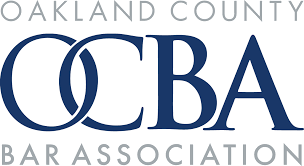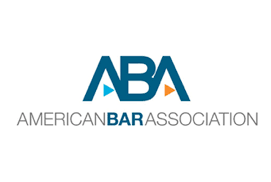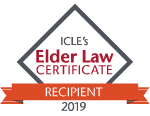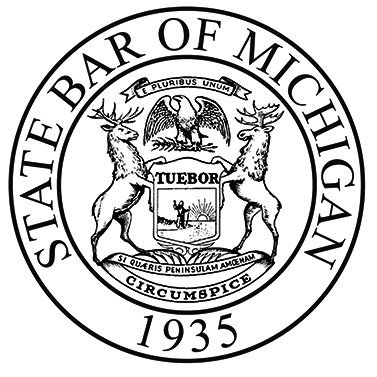Doing nothing changes…….Nothing.Request Your Legal Consult Here.
Bankruptcy
“The principal purpose of the Bankruptcy Code is to grant a “fresh start to the honest but unfortunate debtor.” — United States Supreme Court
Bankruptcy is a legal vehicle that allows a consumer or company to clear debts by way of liquidation or repayment. There are many different options–or “Chapters”–to file bankruptcy. For the average consumer, the options are limited to a Chapter 7 filing or a Chapter 13 filing. Filing bankruptcy can either discard debt or create a repayment plan to repay debts. A successful Chapter 7 filing clears all debt, and is synonymous with liquidation. The other option, Chapter 13, allows a debtor to keep their assets and repay their debts. These Chapters, and laws that govern the process of bankruptcy are from the U.S. Bankruptcy Code federal law.
It is important to know upfront that bankruptcy cannot clear debts from unpaid taxes, unpaid support orders, student loan debt, and a few other types of debt. Speak with an attorney regarding your debts to determine if bankruptcy can help you out of a financial crisis. Speaking with an attorney is essential in a bankruptcy filing because bankruptcy has long-term financial and legal consequences.
A mistake in a bankruptcy case can leave devastating financial and legal results.
Automatic stay protection may be one of the biggest benefits you receive when filing for bankruptcy. Essentially, this protection stops all creditor actions against you the second you file your bankruptcy case with the court. This can be a powerful protection to protect your home against foreclosure, regardless of how close the sheriff’s sale date is.
Concerned About Filing Bankruptcy?
Call Us For Your Consult.
At 855.587.7510 or
Complete This Form.
Bankruptcy
Frequently Asked Questions
WHAT DOES FILING A CHAPTER 7 MEAN?
Chapter 7 bankruptcy is commonly known as liquidation, or sometimes also referred to as straight bankruptcy. It is probably what you think of when you think of bankruptcy. This type of filing allows you to walk away from unmanageable debts, and also avoid paying those debts back to creditors. You can also let go of the fear that creditors will later come after you on these debts.
WHAT DOES FILING A CHAPTER 13 MEAN?
A chapter 13 bankruptcy filing implements a repayment plan on to the debtor which allows a consumer to keep their property by repaying debts to the bankruptcy court. In essence, this type of filing allows you to keep your assets and property by repaying the debts, in contrast to liquidating assets and property to eliminate debt, as is the case in Chapter 7 filings.
.
WHAT ARE THE BENEFITS OF FILING A CHAPTER 13?
A chapter 13 filing will help you in many situations. With this legal option, you can save your home from foreclosure, get rid of second mortgages and other liens, avoid additional liens on other property (such as cars and boats), stop repossession on property, stop garnishments, and catch-up on back-due support payments. Additionally, Chapter 13 provides the option for a consumer to consolidate debt payments into a single, affordable monthly payment. With this consolidation, the debt can be paid off and discharged at the end of 3 to 5 years. During these years, you are protected from creditors.
WHAT ARE THE BENEFITS OF CHAPTER 7?
Along with discharging debts, Chapter 7 filings offer some key benefits and protections to the consumer-filer. To name just a few: automatic stay protection and no tax consequences. Unlike a “debt settlement” or “debt negotiation,” where you settle with a creditor for less than the total amount owed and then have to pay income tax on the amount that is “charged off” or “forgiven” (after they send you a Form 1099 notifying the IRS of the “charge off”), you cannot be charged income tax on a debt that was discharged in bankruptcy.
WHAT IS THE "PREFERENCE PERIOD?"
Another thing that you need to consider prior to filing a Chapter 7 is whether you repaid any money to your friends or relatives within the “preference period” prior to filing bankruptcy. If you did, the Chapter 7 Trustee can (and likely will) sue that person to get the money back from them. This will likely force them to repay all or part of the money and/or cause them to incur substantial attorney fees to fight the Trustee. If you need to file bankruptcy quickly and are concerned about preferences, you can file a Chapter 13.
Videos
A Word Or Two About Bankruptcy and Debt Issues.
Slide Presentations
Free EBook Offer
Obtain Your Free Copy of Soble’s Newest Contract Resource:
SHADY
How To Protect Your Legal & Financial Interests When Doing Business With Family Or Friends
Now you can reference Soble’s straight forward approach to contracting and forming agreements between family or friends. Filled with case studies and legal commentary that is easy to comprehend, relatable, and instructive.
“I wish I had this book before I got into business with my good friend and his sister. It all seems good until it isn’t. David hit the nail on the head. I read the book and found myself nodding my head the whole time. There are so many things that I could have done to protect my assets. I’ll say it again. I wish I had this book…..” B. Abrams, Brownstown
“David, I just finished reading your book, “Shady.” I enjoyed it. It made me think of my business law studying for the CPA exam. Thanks.”
John. B., Birmingham, MI

Why Clients Choose Us
Know the Difference.
Former Big Bank "Insider"
HigHest Peer and Client Ratings
24 Hour Response

30 +Years of Legal & Business Experience
Affordable & Approachable
Innovative & Creative solutions










Other Legal Issues We Handle
We Reduce Legal Exposure & Financial Risks
Real Estate Law
Real estate and finance law are their own legal specialties. So how do you determine which attorney you should work with...
Contract Law
Contracts regulate expectations between parties. Working without a contract is comparable to walking a high wire without a net.
Business Law
Attorneys having years of both practical business experience as well as legal expertise are rare. David Soble is one of these...
Financial Disputes
David Soble has decades of experience being a 'big bank insider." He and his team are uniquely situated when it comes to handling our clients stressful financial...
Litigation
We regularly and successfully litigate real estate and contract issues. While we prefer to first resolve our client's issues amicably, we can and will escalate....
Estate Planning & Probate
To most people, their home or other types of real estate is usually the most valuable asset that they own. We help our clients protect these assets and ensure that they are properly...
What Happy Clients Say...
Dpn't take our word for it! We;re one of the best reviewed law firms in the community.
See hundreds of our reviews on Google, Avvo, Social Survey and Linked In.
Blog
Our Latest Blog Posts
Is a Mortgage Modification Right for You? These are unusual economic times to say the least. Are you behind in mortgage payments? Is your lender threatening foreclosure actions against you? Waiting on your lender to reach out to you with help is not going to...
How To Sign A Legal Document Online
Arbitration vs. Court Litigation
James from South Lyon wrote in last week. He and his wife are buying a new construction home in South Lyon, MI. They are having a major disagreement with the builder about the integrity of the foundation. They don't want to move forward and they want their $55,000...









